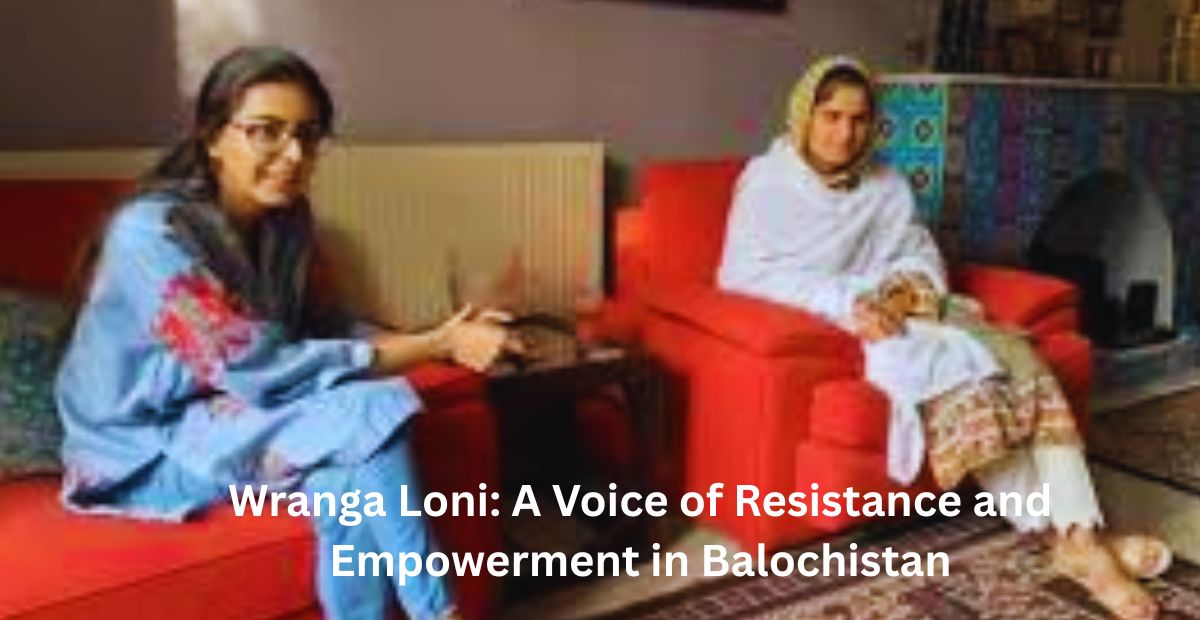Wranga Loni (Pashto: وړانګه لوڼۍ, Urdu: وڑانگہ لونی) is a powerful voice in Pakistan’s ongoing struggle for human rights, particularly within the marginalized Pashtun community. A native of Sanjawi, a town nestled in northern Balochistan, Wranga has become a symbol of strength, resilience, and activism in a region where speaking out comes at a high personal cost.
Early Activism and the Pashtun Tahafuz Movement (PTM)
In February 2018, Wranga joined the Pashtun Tahafuz Movement (PTM) alongside her elder brother, Arman Loni. The PTM, a grassroots human rights movement, demands accountability for extrajudicial killings, enforced disappearances, and the dehumanization of Pashtuns in Pakistan’s tribal belt and beyond.
While Arman preferred working behind the scenes, Wranga emerged as a prominent speaker, addressing crowds and urging Pashtuns to stand up for peace, dignity, and constitutional rights. She also became involved with the Waak Movement, a platform created to politically empower Pashtun women and increase their participation in public discourse—a bold step in the conservative tribal society of Balochistan.
Challenging the Status Quo: A Family in Exile
The Loni siblings’ activism did not go unnoticed. Their increasing popularity and anti-establishment stance drew the ire of powerful tribal elites in their hometown of Sanjawi. As a result, the family was forced to relocate to Killa Saifullah, under the protection of Nawab Ayaz Jogezai, a tribal chief sympathetic to their cause.
The Tragic Death of Arman Loni
On February 2, 2019, tragedy struck when Wranga and Arman participated in a peaceful sit-in outside the Loralai Press Club. The protest ended in violence, and Arman Loni was allegedly killed during a police crackdown. Despite public outrage and calls for justice, local authorities refused to register an FIR (First Information Report) against the police. The federal Human Rights Minister, Shireen Mazari, publicly condemned the police’s refusal and demanded accountability.
Arman’s death shook the movement but did not silence Wranga. Instead, it strengthened her resolve to continue the struggle her brother had died for.
Detention and Continued Harassment
On February 9, 2020, as PTM planned a public gathering in Loralai to mark the first anniversary of Arman’s death, Wranga and several other female PTM leaders, including Arfa Siddiq and Sanna Ejaz, were briefly detained by security forces. Their arrests were seen as part of a broader campaign to stifle dissent and intimidate activists in Balochistan.
Inspiring a Generation of Pashtun Women
Despite the challenges, Wranga continues her activism with unwavering courage. Her role in PTM and the Waak Movement is breaking traditional barriers and inspiring a new generation of Pashtun women to become politically active. Speaking out in a male-dominated society, she emphasizes the importance of awareness and education among women to ensure a peaceful, dignified future for all.
“Women’s awareness was important for our future survival in peace and with human dignity.” – Wranga Loni
Wranga Loni’s Legacy: From Grief to Grassroots Change
Wranga Loni’s activism is not just about resistance—it’s about transformation. From a small town in Balochistan to national and international platforms, she has emerged as a symbol of peaceful resistance and gender empowerment in Pakistan. Her story, intertwined with pain and courage, continues to inspire movements that seek justice, equality, and constitutional rights for all.
Related Activists:
Keywords for SEO: Wranga Loni, Pashtun Tahafuz Movement, PTM activists, Arman Loni, human rights in Balochistan, Pashtun women activism, Waak Movement, female activists Pakistan, Balochistan human rights.
Would you like this formatted for publishing on a WordPress blog or turned into a shareable PDF?
